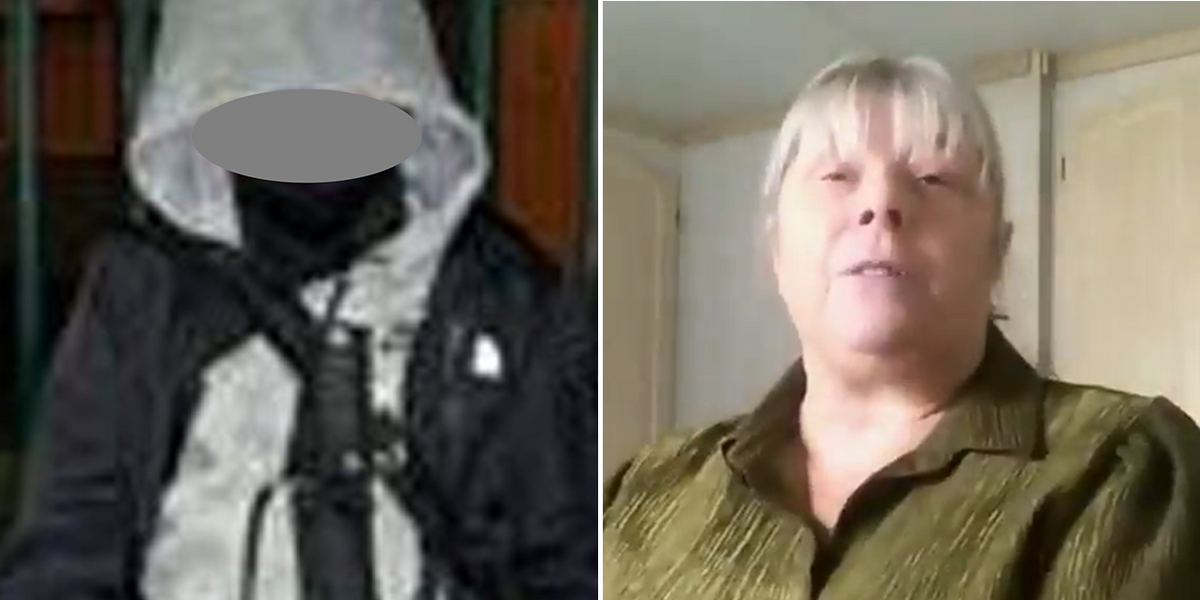The Heartbreaking Reality of Knife Crime: A Grandmother’s Plea for Justice
In a poignant and emotional interview on GB News, Julie Taylor, a knife crime campaigner and grandmother of murdered teen Liam Taylor, shared her heart-wrenching reaction to the sentencing of two 13-year-old boys who committed a brutal machete murder. The case has sparked outrage and raised critical questions about the justice system’s handling of young offenders in the UK.
The Crime That Shook a Community
On November 13, 2022, the lives of many were irrevocably changed when 19-year-old Shawn Seesahai was attacked and killed in an unprovoked assault on Stowlawn playing fields in Wolverhampton. The two boys, who were just 12 years old at the time of the crime, were later convicted of murder. Their actions, described as horrific and shocking by the presiding judge, left Shawn’s family devastated and the community in disbelief.
The judge’s remarks during sentencing highlighted the gravity of the crime: “When you killed Shawn, he was 19, starting out in his adult life with everything to live for. His parents have lost their son. His sister has lost her brother.” The brutal nature of the attack, which lasted less than a minute, has raised serious concerns about the implications of youth violence and the responsibilities of young individuals in society.
A Sentencing That Falls Short
Julie Taylor’s emotional response to the sentencing of the young murderers was palpable. The boys received life sentences with a minimum term of just eight-and-a-half years, a decision that she described as “pathetic.” In her interview, she expressed her disbelief that two individuals who had committed such a heinous act would be allowed to re-enter society with their lives ahead of them.
“It’s absolutely ridiculous,” Taylor stated, her voice filled with anguish. “They knew right from wrong. I tend not to try and listen to things because it’s just too much. I sat and cried before I came on this afternoon. They are just 12-years-old. It’s just horrendous.” Her words reflect a deep sense of injustice felt by many families affected by knife crime, who believe that the justice system often favors the perpetrators over the victims.
The Need for Systemic Change
Julie Taylor’s candid admission about her feelings towards the justice system resonated with viewers and highlighted a critical issue: the need for systemic change in how youth crime is addressed. She called for new guidelines and educational initiatives that would target young people from an early age. “We need to set new guidelines and set examples. It’s heartbreaking to listen to it every day. Please, let’s get education in schools from seven-years-old,” she urged.
Her plea underscores the importance of proactive measures to prevent knife crime and educate young people about the consequences of violence. The emotional toll on families like hers is immense, and the need for a more robust response from the justice system is urgent.
The Broader Implications of Youth Violence
The case of Shawn Seesahai and the subsequent sentencing of his young killers raises broader questions about youth violence in the UK. As knife crime continues to be a pressing issue, communities are left grappling with the implications of such acts and the effectiveness of current laws. The emotional reactions from families affected by violence, like that of Julie Taylor, serve as a reminder of the human cost of crime and the urgent need for change.
In the wake of this tragedy, it is crucial for society to engage in meaningful conversations about prevention, education, and justice. The voices of those like Julie Taylor, who have experienced the devastating effects of knife crime firsthand, must be heard as part of the dialogue on how to create safer communities for future generations.
Conclusion
Julie Taylor’s heartfelt interview on GB News sheds light on the painful realities of knife crime and the inadequacies of the current justice system. As the community mourns the loss of Shawn Seesahai, it is imperative that we listen to the calls for change and work towards a future where such tragedies are no longer a part of our society. The fight against knife crime is not just about punishment; it is about prevention, education, and ultimately, healing for those left behind.
